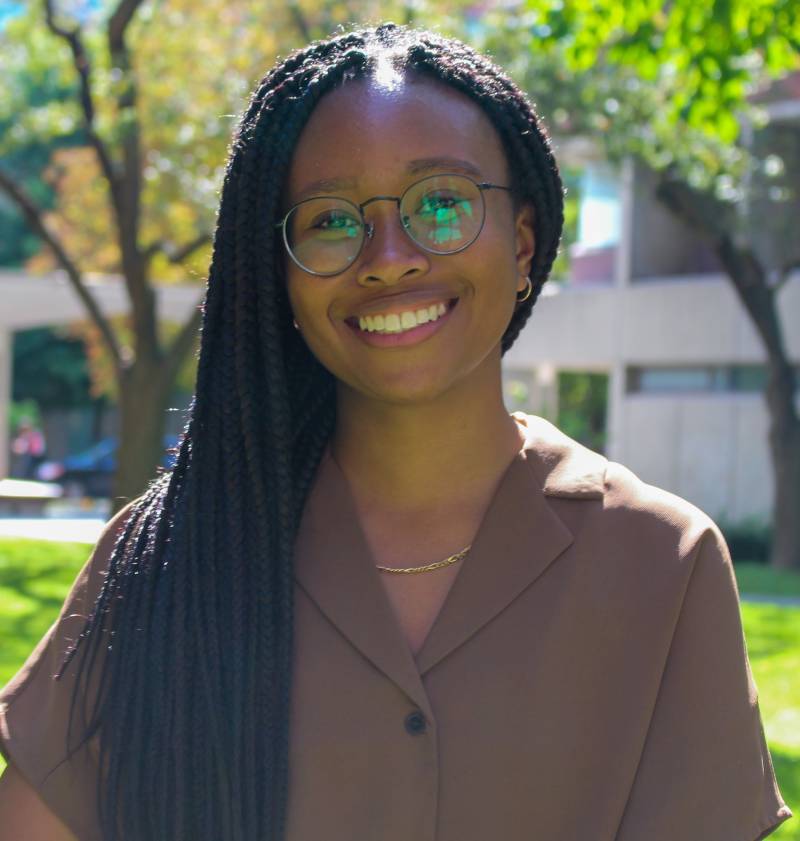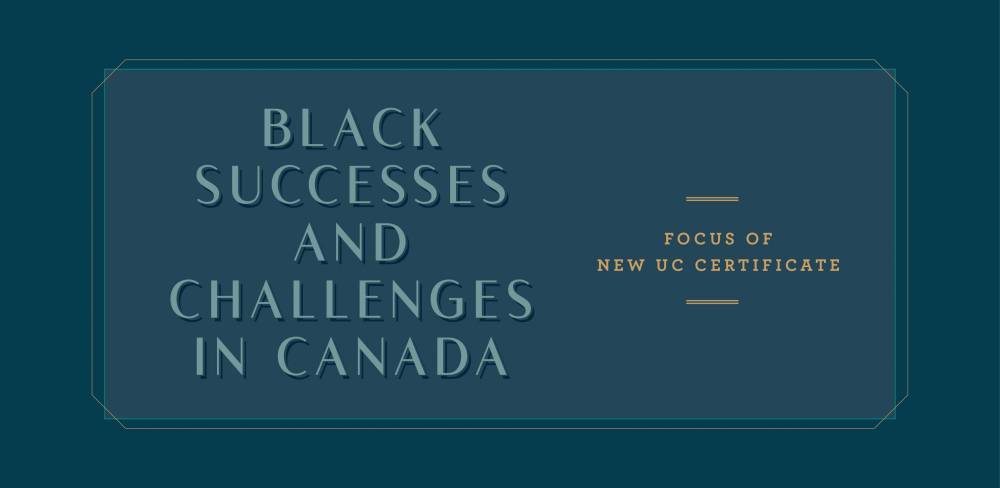In Canada, the discussion of Black Canadians is often framed in terms of suffering and anguish. The few conversations that are had about the Black experience in the media, or academically, often begin with slavery and then follow its cultural echo. Repeatedly, we discuss the African Slave Trade, what happened after its abolishment in the British Commonwealth and how Canada became a respite for some as the final stop of the Underground Railroad.
That legacy of suffering continues as the centrepiece narrative of Black Canada even in self-educated circles, as Caribbean-Canadians teach one another about the injustice of Canada’s treatment of the Maroons: Promising them a return to Africa from Jamaica after working the fields in the Maritimes for a season, instead being left to die in Canada’s frigid winters.
However, we rarely discuss the successes of Blacks in Canada. For instance, those Maroons survived. There were also Black Loyalists who fought for Canada in the War of 1812 and thriving Black communities from sea to sea, from Africville to Hogan’s Alley. Even Canada’s national pastime benefited from Black players in the Maritimes’ Colored Hockey League, where slapshots and sprawling goalies were introduced to the game before those techniques were used in white Canadian hockey leagues.
Canada never celebrates the fact that conferences held on the northern side of the Niagara were pivotal in the founding of the NAACP members initially calling themselves the Niagara Movement. Nor does Canada properly recognize how Jamaican maids revolutionized labour and immigration laws on this side of the border.

Until recently, as a country Canada has rarely celebrated Black Canadian individuals and their successes. For example, the Town of Essex’s own Elijah McCoy’s inventions had a pivotal impact on the modern railway, but attempts to have a park renamed after him there failed. Many of us know of Oscar Peterson, but what of 1920s jazz great Mynie Sutton? Caribana has become an international tourist attraction for Toronto, but few discuss founder Charles Roach’s influence in Canada’s halls of justice. Even now, where is the public recognition for (the Hon.) Jean Augustine, Canada’s first female Black member of Parliament?
Karel Peters, a recent UC Canadian Studies graduate, shared similar concerns when discussing the importance of University College’s new Black Canadian Studies Certificate, “Most often, when Blackness is taught through a North American or western lens, there is a hyper focus on slavery, pain, and exploitation. While these emotions run deep within the experience of the Black community, there is so much to be celebrated! When we uplift Black bodies and accomplishments, we humanize the Black experience—we are just like you; we feel empathy, joy, happiness, and pride.”
Since the 1800s, Black Canadians have had a positive impact on Canadian life. From the stage to the halls of parliament, from union halls to Bay Street, Canada has always benefited from its Black inhabitants beyond the role of inexpensive manual labour. Those achievements are often dismissed, not recognized, erased from texts or left undocumented, creating a vacuum which is often filled with negative, fictional tales. However, recently, things have begun to change.
In 2010, Nova Scotia apologized for the destruction of Africville. There’s now a museum commemorating the lost Maritime community.
 "When we uplift Black bodies and accomplishments, we humanize the Black experience— we are just like you; we feel empathy, joy, happiness, and pride.”
"When we uplift Black bodies and accomplishments, we humanize the Black experience— we are just like you; we feel empathy, joy, happiness, and pride.”
In Ontario, the Buxton National Historic Site and Museum celebrates the first Black community to hold the right to vote in North America. There’s also the Guelph Black Heritage Society, currently housed in a church that was part of the Underground Railroad. More and more communities are unearthing their Black history and finding ways to celebrate it.
In Toronto, you can see the changing tides in the fight to save Eglinton’s Little Jamaica community. You can hear it in the calls to rename streets that share names with slave masters. Even in the arts, the under-construction Nia Centre for the Arts will soon be Canada’s first Black Arts Centre.
It is with this groundswell of social awakening that the University of Toronto launches its Black Canadian Studies Certificate at University College.
In our recent interview, author, editor, and faculty member Funké Aladejebi, PhD, agreed that Canada’s current zeitgeist was influential in the certificate being founded.
“This program exists as a result of increasing calls to action for a better understanding around anti-Black racism and the experiences of persons of African descent in Canada. Students and the general public are asking for sustained and engaged conversations that highlight the lived experiences of Black Canadians, and this program considers this increasing interest over the past decade. Ultimately, this program is long overdue for considering the peculiarities and specificities of Black life in Canada.”
 “I believe this is one phase in a series of ongoing processes seeking to expand knowledge and learning about Black experiences across the diaspora."
“I believe this is one phase in a series of ongoing processes seeking to expand knowledge and learning about Black experiences across the diaspora."
Aladejebi points to student advocacy as a cornerstone of the new certificate and argues that student support and the opportunity to learn from similar programs established before the certificate give the Black Canadian Studies Certificate at University College a strong cultural and academic foundation.
“U of T’s program is largely a result of the advocacy work and knowledge of students and academics engaging in the field of Black Canadian studies. However, the program also builds on the experiences of programs housed at institutions such as Dalhousie and York Universities. As a result, this program is learning from the evolution and development of the field, as well as responding to contemporary debates and conversations around Black life in Canada. Perhaps most pointed in the development of the University of Toronto’s program are the ways it considers counter-narratives and forms of resistance and empowerment enacted by Black Canadian communities.
“In thinking through the ways in which the historical and current experiences frame Blackness in Canada, this program is both broad in its scope and offers depth in its examination of a number of themes, including politics, judicial systems, and the arts.”
Professor Aladejebi hopes that the program eventually grows across all three campuses.
“I believe this is one phase in a series of ongoing processes seeking to expand knowledge and learning about Black experiences across the diaspora. It is hoped that the certificate program considers expanded collaborative projects that support a Black Studies program, adopted across all three campuses.”
BIOGRAPHY FOR DANE SWAN
Bermuda born, Toronto based Dane Swan is a Black, immigrant author and editor of poetry and prose. Author of five books, his second poetry collection, A Mingus Lullaby, was a finalist for the Trillium Book Prize for Poetry in 2017. Editing projects include the Best New Poets in Canada anthology, which he co-edited with Kate Marshall Flaherty for Quattro Books, and Changing the Face of Canadian Literature for Guernica Editions, which was listed on CBC Books’ Best of 2020 list. His most current book is Love and Other Failed Religions, published by Mansfield Press in 2021.
